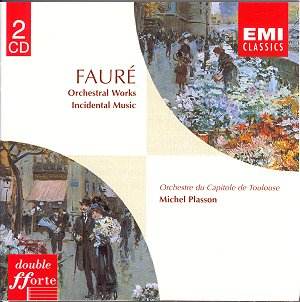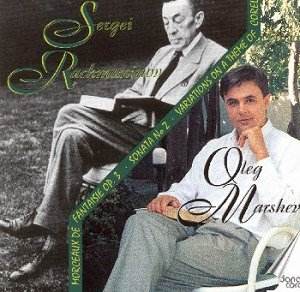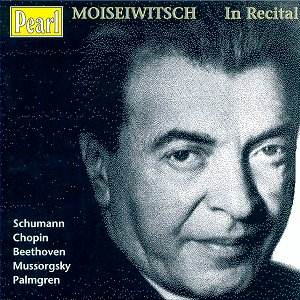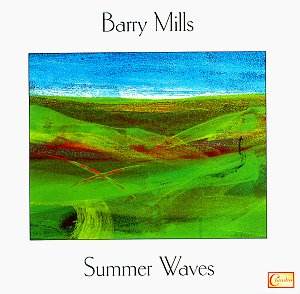 Composer: Gabriel Fauré
Composer: Gabriel Fauré
Works: Pelléas et Mélisande: Prelude, The Spinning Girl, Sicilienne, Mélisande’s Song, The Death of Mélisande; Masques et Bergamasques: Overture, Pastorale, Madrigal, The Sweetest Road, Minuet, Clair de lune, Gavotte, Pavane; Shylock: Song, Entr’acte, Madrigal, Epithalame, Nocturne, Finale; Ballade for piano and orchestra; Élégie for cello and orchestra; Berceuse for violin and orchestra; Fantaisie for piano and orchestra; Les Djinns; Caligula; Pénélope Prelude
Performers: Frederica von Stade (mezzo-soprano), Nicolai Gedda (tenor), Jean-Philippe Collard (piano), Paul Tortelier (cello), Yan-Pascal Tortelier (violin), Ensemble Vocal Alix Bourbon, Orchestre du Capitole de Toulouse conducted by Michel Plasson
Recording: Recorded in Halle-aux-Grains, Toulouse, CD1 June 1980 and CD2 June 1979
Label: EMI
Gabriel Fauré’s oeuvre is often characterized by its lush harmonic language and poignant lyricism, elements that resonate profoundly within this compilation, expertly assembled by EMI. This two-disc set encapsulates both the well-trodden gems and the lesser-known treasures of Fauré’s orchestral and vocal music, revealing a composer who adeptly balances sophistication with emotional depth. Fauré, writing during a period of profound cultural transition in France, infused his works with a sensibility that speaks to the complexities of human experience, reflecting both the optimism of the Belle Époque and the shadows of the impending Great War.
The performances led by Michel Plasson and the Orchestre du Capitole de Toulouse are noteworthy for their refinement and clarity, particularly in the renowned suites from Pelléas et Mélisande and Masques et Bergamasques. The Prelude from Pelléas unfolds with an ethereal quality, the strings evoking a shimmering atmosphere that sets the stage for the drama that follows. Frederica von Stade’s interpretation of “Mélisande’s Song” is a highlight, her voice imbued with a haunting wistfulness that perfectly captures the character’s fragility. Nicolai Gedda’s contributions are equally compelling, his tenor resonant in “The Sweetest Road,” where the intricate interplay between voice and orchestral textures is executed with precision and grace.
The inclusion of Shylock, an early work from 1889, adds an intriguing dimension to the collection. The opening “Song,” marked by shadowy string figures and delicate harp interludes, showcases Gedda’s ability to navigate Fauré’s nuanced vocal lines with both strength and sensitivity. The Entr’acte and subsequent movements reveal Fauré’s capacity for contrasting textures, from the heroic to the intimately tender, exemplifying an impressive range that is rarely encountered in his more familiar pieces. The orchestration here is rich and varied, signaling Plasson’s adept handling of dynamics and timbral color.
On CD2, the focus shifts to Fauré’s concertante and choral works, with Jean-Philippe Collard’s performances of the Ballade and Fantaisie standing out. The Ballade, originally deemed too challenging by Liszt, is delivered with a sense of playful bravado, Collard deftly navigating its technical demands while capturing the work’s emotional spectrum. The Fantaisie, with its autumnal melancholy, is imbued with a sense of nostalgia that resonates deeply, echoing Fauré’s own late style. Paul Tortelier’s Élégie is particularly arresting, his cello voice conveying a palpable sense of sorrow and introspection, while Yan-Pascal Tortelier’s Berceuse showcases the violin’s lyrical potential, the sweet melody floating above the orchestral backdrop with an almost dreamlike quality.
The recording quality is commendable, with a clarity that brings forth the intricacies of Fauré’s orchestration, allowing the listener to appreciate the delicate interplay of voices and instruments. The engineering captures the warmth of the Toulouse venue, enhancing the lush textures that define Fauré’s sound world. Comparatively, this compilation stands as a definitive document of Fauré’s orchestral palette, providing a fuller picture than many other recordings that often focus solely on the more popular works.
This compilation not only celebrates Fauré’s more celebrated works but also sheds light on pieces that deserve greater recognition. The combination of sophisticated interpretations, the orchestral finesse of Plasson and his ensemble, and the emotional depth embodied by the soloists culminates in a listening experience that is both enriching and enlightening. A thoroughly engaging tribute to one of France’s most beloved composers, this collection is indispensable for both the seasoned aficionado and those newly acquainted with Fauré’s enchanting musical language.



